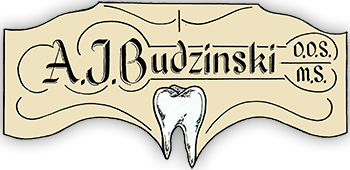5 Essential Things to Do after Getting Dental Implants
- On Jul, 15, 2019
- Racine Dentistry Team
- Dental Resources
Restoring one’s teeth with dental implants is a procedure that can be tough on a patient. A person can avoid unnecessary post-surgery complications by applying careful consideration and habits to his or her routine. For those of you who have had implants, you know they can only be fixed through an additional surgical procedure. And, like all surgical procedures, certain practices are excellent pre and post-surgery. Because the process involves the introduction of a “foreign body” into the body system, adequate care must be taken to prevent unfortunate situations like gingivitis, bloody gums, and more. The reason to get dental implants at Racine Dentistry in Racine, WI is to improve one’s oral health, so it would be unfortunate if this action became the cause of an additional source of discomfort. Here’s some advice you should consider following after having dental implant surgery:
Use Only Nylon-Coated, Soft Bristle Brushes
Dental implant surgery costs at Racine Dentistry are affordable, but what one cannot afford is further complications due to carelessness. Brush your teeth and gums two times every day, after morning and evening meals. This practice will ensure that there are no bacteria-inducing food particles or other foreign objects in your mouth for long periods. Be sure to use toothbrushes with nylon-coated, soft bristles only. There are two significant reasons for this:
A toothbrush with nylon bristles will be much easier to manipulate in and around the mouth. The bristles can easily bend and get in all the corners and hidden spots. You need this because it is essential that the surface of your implants—both the root and the crown are well washed, daily.
The other reason for recommending a soft toothbrush is that it will be easier on your teeth and implants. Unlike real teeth, the surface of implants can be scratched. Also, because the area will have just been operated on surgically, the gum around the implant will be tender and may easily bleed if hard bristle brushes are used.
Always Use Mild Products
Stick to mild products for your toothpaste and other mouth cleaning substances. Avoid eccentric formulas, for example, versions with high-mint content, and especially do not use abrasive toothpaste.
Floss Everyday
Flossing is also highly crucial after dental implant surgery. It prevents plaque accumulation around the operated area. There are dental flosses that are specially designed for people using dental implants.
Water Flossing
Oral irrigators or water flossers are also very useful in removing plaque and preventing their accumulation. When using a water flosser, be sure to check the effectiveness with dental implants to avoid irritation and corrosion, as not all oral irrigators are safe for use if you have dental implants. Some manufacturers carry out different trials involving people with dental implants to determine their effectiveness. It is recommended that you find out the results of such tests for the product you choose.
Gum Stimulators
Gum stimulators can help people with dental implants nurse the operated area back to the natural state by helping blood and oxygen get to the area in abundance. Also, when the gums are massaged with rubber stimulators, the tissue around the dental implants is strengthened. Swelling of the gums and bleeding are also prevented, so contact the experienced dentists at Racine Dentistry in Racine, WI, today.
| M | T | W | T | F | S | S |
|---|---|---|---|---|---|---|
| 1 | ||||||
| 2 | 3 | 4 | 5 | 6 | 7 | 8 |
| 9 | 10 | 11 | 12 | 13 | 14 | 15 |
| 16 | 17 | 18 | 19 | 20 | 21 | 22 |
| 23 | 24 | 25 | 26 | 27 | 28 | |



